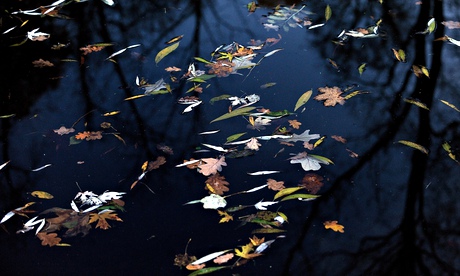
A footnote to this week's poem by Lotte Kramer (published in The Rialto, No. 80, Spring-Summer 2014) tells us that the poet "is a survivor of that small exodus of children organised by the kindertransport movement in the 1930s".
Kramer was born in Mainz in 1923, and now lives in Peterborough. She has said elsewhere that there are three rivers she lays claim to, the Rhine, the Thames and the Nene. Perhaps currents from all three intermingle in Silence. Another earlier poem, Bilingual describes the sea as "liquid memory" a phrase which suggests a fourth, subterranean river in Silence. This memory-river flows from the first word, "Today", to the remoter distances of the second stanza: "I left them in their blinding talk … " Deictic terms like "Here" and "Now" turn out to be rather more transitory as foot-holds than they first appear.
But there's also an impulse in the poem to halt movement. Its semi- rhyme scheme, a single chime for the third line of each tercet, reinforced by the regular metre, promotes a stop-start effect. The verbs in the first stanza are slow – the river "slinks", the dead leaves "crawl". In the third, mysteriously static birds enable the speaker to "hold the air". They appear "still", as if caught by a painter or photographer or memory itself. But "still" is an adverb as well as an adjective, and its use is ambiguous: it might hint at continuity, as if holding the air were a skill the speaker could "still" summon.
That the birds are emblematic is pointed by the contrast between their perceived individuality ("solitary in their flight") and the collective energy of "men's calculated race". Mankind rather than the male gender is indicated here. Heavy overtones in the word "race" rise overwhelmingly. No one aware of Kramer's history can forget the Nazis' "calculated" interpretations of "race". But there's also the covert racism awaiting those who flee from its noisier forms. Is racial competition the endless secret "race" which humans run? Might this be another element concealed in the "Silence" of the title?
Unease returns in the last tercet, after a glad beginning. "Here, only sun and water rule" evokes the unpolluted transcendence of the second stanza, when the narrator could obliterate the "blinding talk" – talk that was incomprehensibly foreign or vicious (depending on how we interpret "them") to "bend the grass for light and space". But now conviction seems undermined. If the sun and water "rule/Unchallenged over silent pain" the suggestion might be that, rather than offering consolation, the elements are unequal to the suffering. The "pain" itself seems to be given voice and form, finally, in "the burst cry of a grey swan". Like the birds in the previous stanza, the swan is partly symbolic: it's grey, not the usual white or black, and its "burst cry" inevitably suggests alarm, even injury.
Whether we locate the speaker in the present day, or, taking our cue from the second stanza, imagine her at some earlier phase of life, a soon-to-be emigrant or a new immigrant, the "making strange" of the conventionally beautiful and "poetic" image of the swan suggests alienation. This, registered both in imagery and in the slight dislocations of the diction itself, is what twists the current of the poem disturbingly beyond the pastoral redemption it tentatively found.
Silence
Today the river slinks like oil,
Hardly a current in its mud
As autumn leaves crawl on its face.
I left them in their blinding talk
To meet adopted path and sky,
And bend the grass for light and space.
Here I can hold the air with birds,
Still, solitary in their flight
Without men's calculated race.
Now only sun and water rule
Unchallenged over silent pain:
And the burst cry of a grey swan.

